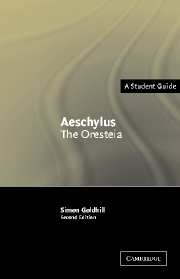1 - Drama and the city of Athens
Published online by Cambridge University Press: 05 June 2012
Summary
To exist outside a polis is to be either greater or less than human.
AristotleAll our surviving tragedies were written for and performed first in one place, Athens, in the fifth century B. C. To understand tragedy, something of its cultural and historical frame must be appreciated. In this chapter, I consider four fundamental contexts for the genre of tragedy.
The context of the polis
Let us start, then, with a necessary word of Greek: polis (plural poleis). I must transliterate this because no translation – certainly not the usual translations ‘city’ or ‘city-state’ – captures the complex range of political, spatial, religious, historical and social ideas evoked by the Greek term. That I just used the modern term ‘political’, which is derived from the Greek term ‘things to do with the polis’, shows the problem neatly. For many modern readers, I expect, the term ‘political’ will imply a more or less narrow concern with government and institutions and ideological programmes – as in ‘keep politics out of sport’. The polis in Greece, however, is the very condition of human existence (as the epigraph to this chapter claims) and ‘things to do with the polis’ – the political – embrace all aspects of a citizen's life. (Thus ‘the personal is political’ could have no purchase as a slogan in the fifth century, any more than could the claim that athletic achievement was not integrally linked to the standing of the citizen and his polis.)
- Type
- Chapter
- Information
- Aeschylus: The Oresteia , pp. 1 - 19Publisher: Cambridge University PressPrint publication year: 2004



